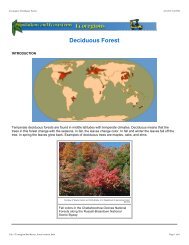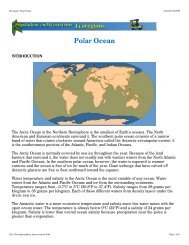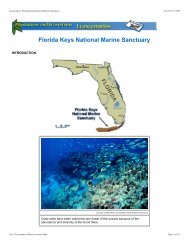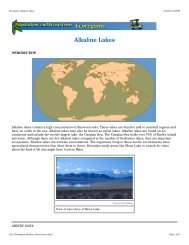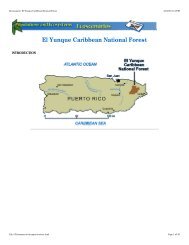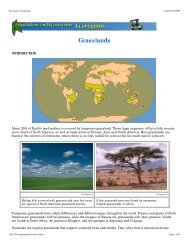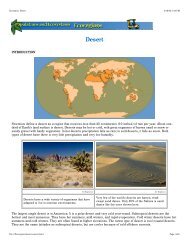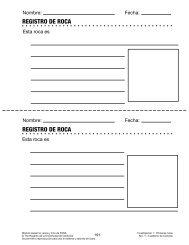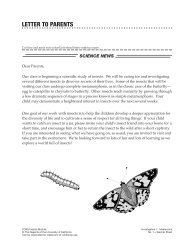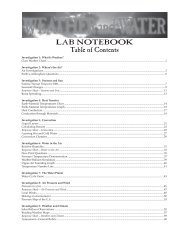Ecoscenarios Combined - FOSSweb
Ecoscenarios Combined - FOSSweb
Ecoscenarios Combined - FOSSweb
Create successful ePaper yourself
Turn your PDF publications into a flip-book with our unique Google optimized e-Paper software.
Ecoscenario: Monterey Bay National Marine Sanctuary<br />
4/16/03 3:22 PM<br />
ISSUES<br />
A primary concern for the kelp forest is the impact of fishing, kelp harvesting, and ocean farming or mariculture. People<br />
have used the oceans as a source for food for centuries, fishing and hunting for fish, invertebrates, whales, and other sea<br />
animals. Historically, fishing and hunting have had a significant impact on the kelp forest ecosystem.<br />
Fishing<br />
European traders reported the vast riches of the West Coast oceans in the 1700s. Many countries sent explorers and<br />
traders to reap the wealth of the kelp forest. The Chinese began harvesting kelp, abalone, squid, and shark in 1850. Italian<br />
immigrants fished and supplied the markets in San Francisco. By 1900, abalone was so scarce that commercial harvest<br />
was banned. Offshore fleets of fishing ships came from Japan, Russia, and Vietnam.<br />
Monterey Bay is the location of Cannery Row, made famous in a book by John Steinbeck. The seemingly inexhaustible<br />
supply of sardines supported the local canning industry. In the 1940s and 1950s the sardine populations crashed,<br />
because of overharvesting and pollution.<br />
The sardine population has not fully recovered from this crash. While over 3 million tons of sardines were harvested<br />
file:///Ecoscenario/monterey/content.html<br />
Page 10 of 14



